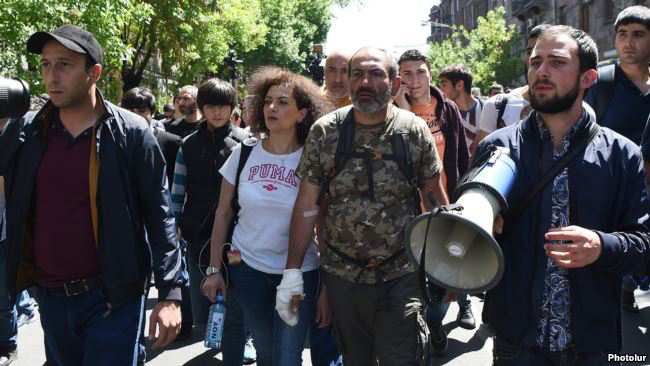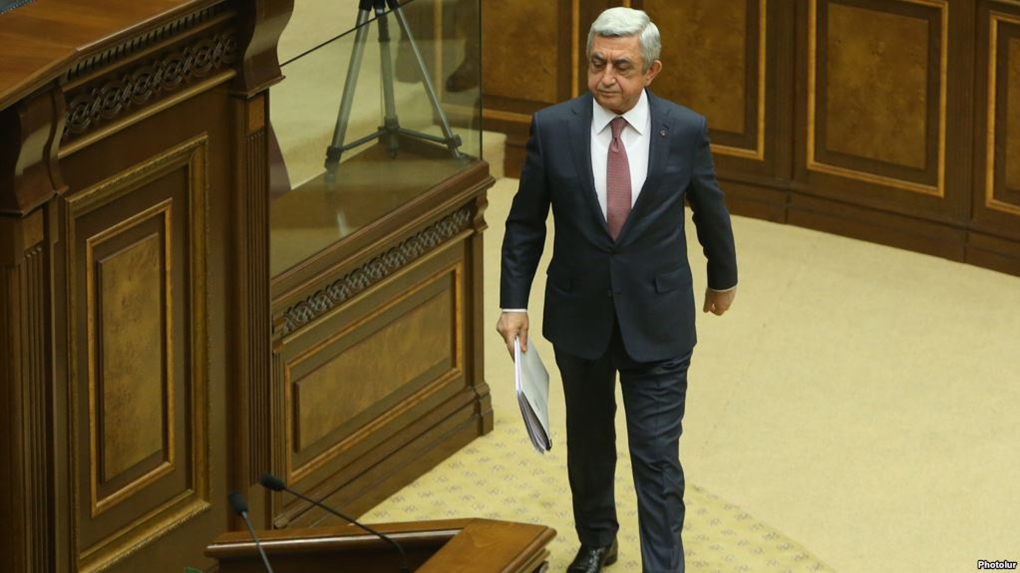YEREVAN (Combined Sources) — Former President Serzh Sargsyan sought to justify his decision to hold on to power on Tuesday, April 17, as lawmakers elected him Armenia’s new prime minister amid continuing opposition demonstrations in Yerevan.
Sargsyan denounced the ongoing protests but at the same time downplayed their significance moments after the Armenian parliament voted by 76 to 17 to appoint him to what will now be the country’s top government post.
“The people cannot be unruly,” he said on the parliament floor. “If they were, there would be millions of people in the streets. You know full well how many people are taking part in these demonstrations.”
The main organizer of those rallies, Nikol Pashinian, pledged to continue his campaign which he said is turning into a popular “velvet revolution” against Sargsyan. Reacting to the parliament vote, Pashinian told RFE/RL’s Armenian service (Azatutyun.am) that he will keep trying to “paralyze the state government system” with peaceful acts of “civil disobedience.”
Pashinian and other critics say that Sargsyan’s extended rule would deal a severe blow to democracy and the rule of law.


Sargsyan claimed that his premiership will not amount to a third term in office because he will wield fewer powers than he did in his previous capacity as president of the republic. “People have still not realized that there is no one-man rule anymore,” he complained at a special session of the National Assembly overshadowed by tight security measures taken in and outside the parliament building.







